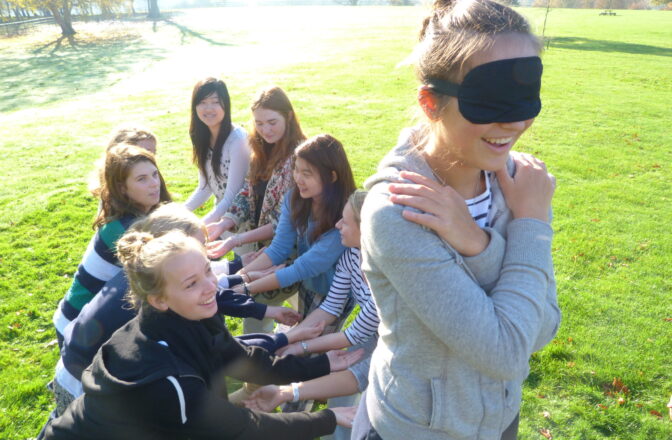Bringing Adventure to Your School: Wilderness Expertise In-House Teambuilding Days
At Wilderness Expertise, we believe outdoor learning shouldn’t be limited by location...
Learn more
10 October 2024
Building Leadership through Outdoor Education: Lessons from the Duke of Edinburgh Award and Personal Development Days
Outdoor education offers a unique platform for developing the essential character trait of leadership. Whether through structured programmes like the Duke of Edinburgh Award (DofE) or personal development days, students are thrust into environments that challenge them to take initiative, communicate effectively, and inspire others.
Leadership in Action: The Duke of Edinburgh Award
The DofE programme is one of the most well-known avenues for outdoor education, placing young people in challenging scenarios designed to foster a range of life skills, with leadership at the forefront. During the expedition phase, students are often required to navigate unfamiliar terrain, carry their own equipment, and work together as a team to achieve a shared goal. The absence of direct adult supervision encourages students to step up, make decisions, and take responsibility for their group’s progress and safety.
For example, during a multi-day hike, a student might naturally emerge as a leader by organising the group’s daily route or ensuring everyone is keeping pace. Leadership in this context doesn’t necessarily mean being the loudest or most assertive; it’s about understanding the group’s strengths and weaknesses, motivating the team, and making decisions under pressure. These are the kinds of qualities that the DofE programme nurtures through experiential learning, helping young people gain the confidence to lead in a variety of future settings.
Personal Development Days: Leadership in Shorter, Intense Experiences
While the DofE is a longer-term commitment, personal development days offer similar leadership-building opportunities within a shorter time frame. During these days, activities like climbing, orienteering, and team-building games are deliberately structured to require cooperation and leadership. Take, for instance, an orienteering challenge. Participants are tasked with finding a series of checkpoints using only a map and compass. In such scenarios, natural leaders emerge as they guide the group, assign roles, and ensure everyone is contributing to the task at hand.
Likewise, teamwork exercises such as building a buggy or navigating a ropes course require students to take charge. Whether that means coming up with a strategy, delegating roles, or stepping back and allowing others to shine, these activities teach that leadership isn’t just about directing others—it’s about encouraging participation and recognising when to let others lead.
Why Outdoor Education Works for Leadership Development
Outdoor settings, whether in the context of a DofE expedition or a single-day personal development event, push students beyond their comfort zones. Away from the usual classroom environment, participants are often faced with real consequences for their decisions, which amplifies the importance of good leadership. There’s also an element of unpredictability that mirrors real-world leadership scenarios—students must think on their feet, adapt to changing conditions, and remain calm under pressure.
Moreover, outdoor education promotes resilience, another key aspect of leadership. Whether it’s overcoming physical exhaustion on a long hike or solving a tricky problem during a team-building activity, students learn that setbacks are part of the process, and strong leaders are those who can inspire others to keep going in the face of challenges.
In both DofE programmes and shorter personal development days, the lessons in leadership gained from outdoor education are invaluable. Students not only learn to guide and motivate others, but they also gain insight into their own leadership style—whether it’s through quiet, thoughtful guidance or more direct, hands-on approaches. These experiences lay a solid foundation for future leadership roles, whether in school, the workplace, or the community.
Outdoor education offers a powerful means to build character, with leadership being a key takeaway that benefits participants for life.